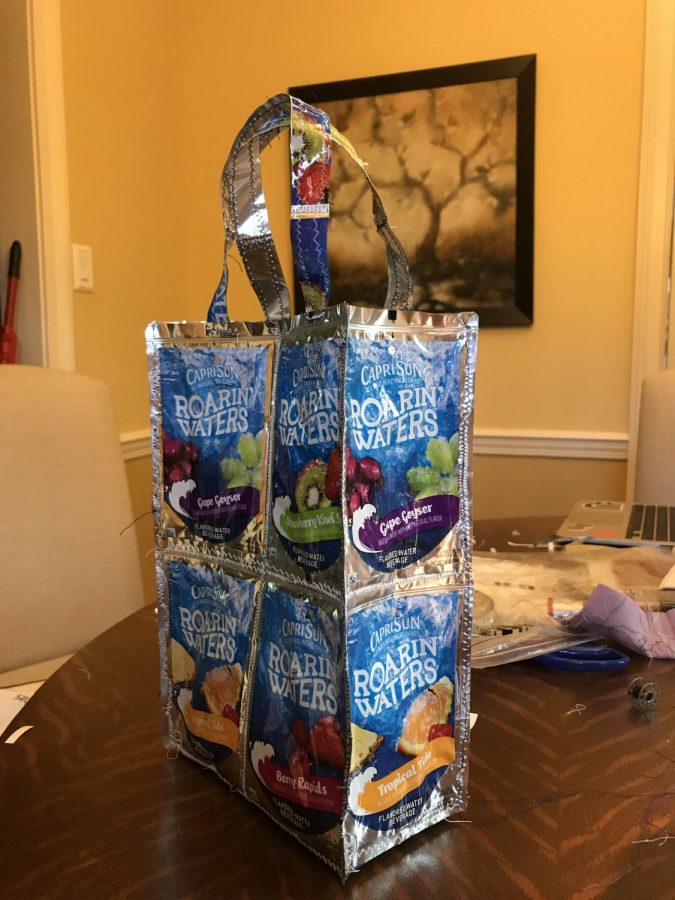Science Department
AP Physics
AP Physics as a year-long AP alternative to the required course that is regularly taken by juniors. The class focuses on the principles of physics like motion, gravity, and forces but moves at a more accelerated pace to cover all of the subject matter that is on the AP Physics exam at the end of the school year. AP Physics is a math-heavy course that requires some math ability, although AP Calculus prepares students especially well for the course.
“AP Physics is a math based science class. I would not take this class if you haven’t taken Pre-Calculus,” said junior Morgan Warfield.
While there is no math requirement prior to taking AP Physics, the class can present challenges if you don’t have the mathematical ability.
“In all honesty, I knew that this class wouldn’t be much harder than regular physics and I could get the GPA boost but I’ve also heard that it goes along with Calculus well,” said junior James Hardy.
Like many APs, especially in the realm of math and science, students have to be self-motivated in order to succeed.
“[I would recommend this class to] people who are good at science and want to learn it otherwise it’s pretty confusing,” said junior Nic Yen.
Many students find that it is very possible to thrive in AP Physics and that getting an A is an attainable goal. However, you have to put in the time and energy to make sure you grasp the material.
“[AP] Physics is a lot of hard concepts but with a very relaxed environment. We take notes sometimes but if you really want to understand the concepts you have to be self motivated and ask lots of questions,” said junior Lila David.
AP Biology
AP Biology is a rigorous course that delves deeper into the material that is learned during freshman year Biology. AP Biology is an elective that can be taken by juniors or seniors, although many seniors opt to take it as their fourth and final science credit.
AP Bio is a class for more in depth and practical applications of biology that we learn freshman year. It is a largely self driven class with Ms. Pete teaching at the beginning of units and us learning the rest,” said senior Nick Markiewicz.
When it comes to the actual material, it is fairly straightforward. According to most students, the challenge is staying on top of it because the class is fast paced and there is a lot of information to cover. Despite the quick pace, AP Bio tends to follow a routine that ensures that students grasp the concepts they’re learning.
“It’s a pretty fun class. It’s a good mix between labs, lectures and independent learning. Usually for each unit Ms. Pete will lecture for a day or two, then we’ll have some time to do independent work to help us understand what we’re learning better, and we’ll also do a lab to cement what the unit means,” said senior Oliver Hurst.
Because of the nature of the class, students should be fully aware of their own ability before signing up to take it. Working diligently is the only way to ensure a good grade in AP Biology.
“It is definitely not an easy A. However, if you do the work and turn it in on time, you can keep a decent grade in the class. A large portion of the class is self studying though, so you have to be willing to put in the work,” said junior Ayushi Mukund.
AP Chemistry
While all Chamblee students are required to take regular Chemistry in 10th grade, some students choose to take AP Chemistry in order to further their knowledge. The class is typically taken by juniors and seniors as an elective, although it can be used to fill students’ final science credit in their senior year. The class is heavily self-directed, meaning that students interested in taking AP Chemistry should be self-motivated and have strong work ethics.
“AP [Chemistry] is definitely a hands-on class that really challenges you to learn things on your own and focus on what you need to learn specifically. Dr. Z usually puts files and videos on Verge, but the main way that I learned through AP Chem was through the lab experience itself,” said senior Sahara Heatherington.
It is recommended that you at least have an interest in the STEM fields before taking this class.
“I would recommend the class to students who are independent and like hands on learning. I would also recommend the course to students who did well in chemistry sophomore year, specifically to rising juniors because the information you learn can be used in AP Bio senior year. Plus if you take chemistry in your junior year you are likely to remember the concepts you learned during sophomore year — and you use those concepts a lot!” said Heatherington.
Most students agree that enjoying 10th grade chemistry is the first indicator that you might like AP Chemistry.
“I actually found general chemistry interesting and it also aligns with my future career aspirations,” said junior Victor Lim.
Although AP Chemistry is notoriously difficult, students who enjoy the class will tell you that the hard work pays off.
“The best part of this class is the freedom we have to work on our own things and the experiences we collect through labs,” said senior Debbie Kitzler.
AP Environmental Science
AP Environmental Science, or APES, is an elective science primarily taken by juniors and seniors. The course focuses on the environment, it’s different attributes, and how humans affect it. This class is unlike any other here at Chamblee and is unique because the subject matter covered in APES is rarely covered in any required high school curriculum.
“APES consists of lots of notes and pretty frequent labs that cover the material for whatever unit we are on. Although the class is centered around environmental issues and concerns, we cover a lot more than just what’s wrong with our environment and the human impact we have. We’ve covered ecology sciences (biomes, trophic levels, cycles), human population and growth and development, and lots about biodiversity,” said junior Olivia Castro. “As someone who enjoys learning about things that are relatable and affect me, I really like this class compared to others (aka chemistry) because it’s applicable to things I see on a daily basis.”
Some may consider APES to be an easier AP because of the subject matter and, in turn, an easy way to boost your GPA.
“I wanted another AP science and from what I heard it was a pretty easy class. I would definitely say I enjoy the environmental science subject,” said junior Ryan Bray.
Most students would agree that APES is on the easier side of the spectrum of AP difficulty, but students still have to work to keep an A in the class.
“If you put in a decent amount of effort and attention it isn’t hard, but Mrs. Begum does teach it, so you have to be willing to do some work,” said junior Smrithi Satish.
Luckily, the work that you have to do in APES isn’t busy work. Outside of class, students are required to do meaningful projects that reflect their overall understanding of the course and its content.
“I think the best part of the class is probably the genius hour project we have done. Our “genius hour project” is a group project we are doing each semester with the categories: reduce, reuse, recycle. Every group chooses one of the categories and designs a project that executes that goal. This semester my group decided to reuse CapriSuns to make lunch boxes. Although time consuming, the project was fun and not too overbearing. It was a good experience that taught us a lot through the process,” said Castro.
Anatomy
Anatomy is the general science course for seniors. Students learn about the body systems and their functions. “What we’re learning now is the senses and special senses,” said Emily Adams. “General senses, which are like the receptors you have all over your body, and special senses, like your eyes, ears, mouth, and nose.”
Many of the assignments come from an interactive notebook, reminiscent of 9th grade biology. “It’s basically all interactive notebook,” said Sahara Hetherington. “We take notes, and then we have homework assigned in the textbook, and that’s basically it. Now that it’s second semester, we’re doing dissections.”
For many students, the best part of the class is the teacher, Ms. Warren. “My favorite parts of the class are Ms. Warren’s energy and the way that she presents information to us,” said Mary Axelson. According to Zoe Kehoe, “Even if you’ve never liked a teacher before, you will most likely like her.”
All students surveyed reported that the work is consistent, but easy to understand. It doesn’t take hours, but prospective students should expect to do homework every night. “The work isn’t unbearable,” said Hetherington. “But there is homework every night, so it’s like you always have to be doing something for the class. It’s not hard, but there is always something to do.”
Your donation will support the student journalists of Chamblee High School Blue & Gold. Your contribution will allow us to print editions of our work and cover our annual website hosting costs. Currently, we are working to fund a Halloween satire edition.

Stella Garrett is a senior and editor-in-chief of the Blue & Gold. Outside of journalism, you can find her making costumes for Chamblee Onstage, drowning at water polo practice, sleeping, and playing with crystals. In five years, she hopes to be working on a farm or traveling the world in her converted sprinter van. This is her third year on the staff.


Leila Warren • Feb 9, 2020 at 5:41 pm
Thanks for adding Anatomy! I appreciate it!